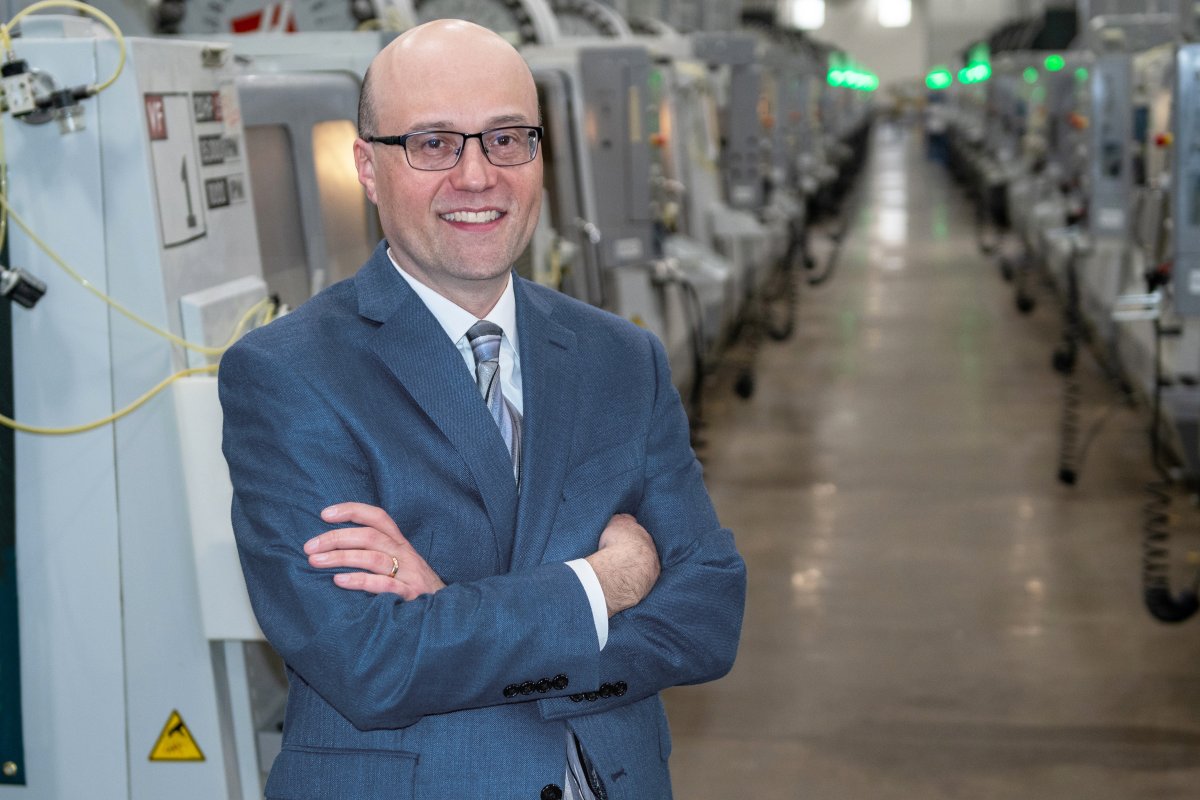Manufacturing 4.0
Manufacturing has entered the so- called Fourth Industrial Revolution and Robert “Rob” Bodor is on the front lines.
Bodor serves as the president and CEO of Protolabs, a Minnesota-based company that has become the world’s leading provider of digital manufacturing services such as injection molding, Computer Numerical Control (CNC) machining, 3D printing, and sheet metal fabrication. The job caps a diverse career for the Minnesota-trained technologist who earned three degrees in three different specialties from the College of Science and Engineering.
“In technology, especially Internet technology and computer science, everything changes so fast you need to be continually learning,” Bodor said. “The multidisciplinary path that I took prepared me very well for that—because in every new program, I was in some ways starting from scratch and having to learn a new discipline. The main things that education provides are skills for learning how to learn, and the University prepared me well.”
Just as technology evolves at ever-accelerating pace, Bodor himself has undergone plenty of evolution. He majored in electrical engineering and received his bachelor’s degree in 1995. He then shifted to mechanical engineering, earning a master’s degree in 1997. After a five-year stint as co-founder of a tech startup, he returned to the University for a Ph.D. in computer science.
“I came to believe this while at the University—that a lot of innovation happens at the boundaries between different disciplines,” Bodor explained. “A lot of creativity happens when you bring people together from different backgrounds to solve shared problems. They have different toolkits and different perspectives, and those tensions create positive growth and innovation.”

Innovation is the name of the game at Protolabs. The company was founded in 1999 by entrepreneur Larry Lukis with an ambitious goal: to revamp the ordering and manufacturing of injection molded parts, thus allowing customers to develop and market products much more quickly. Seeking to digitize the entire manufacturing process, the company created software to communicate designs directly to manufacturing hardware.
The process works like this: a customer uploads a 3D CAD model to the Protolabs website. Within a few hours, the system provides an automated price quotation with design-for-manufacturability analysis obtained by sending the part through a “digital twin” of Protolabs’ entire manufacturing process. Once the customer accepts, the design is translated into digital code, analyzed, and adjusted for optimal production. These instructions are sent to machines on the production floor. At the tail end, pieces go through a finishing process that might include coatings (to enhance strength or appearance), customization, and polishing. The standard lead time is 15 days, but some orders can be turned around in a single day.
Protolabs, with nearly $500 million in revenue and 2,800 employees, touts itself as “the fastest and most comprehensive digital manufacturing service in the world.” With 12 global manufacturing facilities (including three in Minnesota) plus an international network of partners, the company makes more than 4,000 molds per month and 4 million individual parts. It serves industries such as medical and healthcare, computer electronics, industrial machinery, aerospace, and automotive.
In 2021, the World Economic Forum’s Global Lighthouse Network recognized Protolabs as an exemplar of the “The Fourth Industrial Revolution.” In the 18th century, the first Industrial Revolution occurred when water and steam-driven engines mechanized production. In the 19th century, the Second Industrial Revolution exploited electricity for mass production. In the 20th century, the Third Industrial Revolution used information technology to transform modern life. Now the so-called “4IR” fuses the digital, physical, and biological worlds.
When Bodor first saw Protolabs, he recognized something extraordinary. “It was the first time I had seen a company embracing Manufacturing 4.0,” he recalled. “I thought that was revolutionary.”
Indeed it was—and an opportunity for Bodor to draw upon his own diverse experience. Besides earning three degrees from CSE, he founded a tech startup (Point Cloud, later sold to ShopNBC), advised Fortune 500 companies (as a consultant with McKinsey & Co.), and worked as a manager in a large manufacturing company (Honeywell).
Since joining Protolabs in 2012, Bodor has left his stamp in several roles. As chief technology officer, he oversaw the expansion of the injection molding business into liquid silicon rubber molding and the addition of CNC turning (in which parts are cut into shape while spinning on an axis, similar to a lathe). He served as the first general manager of the Americas division and his unit more than doubled revenues to $350 million in six years. In 2021, he was promoted to president and CEO.
Even now, far removed from student life, Bodor still can see a clear stamp of his CSE degrees.
“My experience at the University was very comprehensive,” he said. “But I was allowed quite a bit of flexibility and I had a lot of support for pursuing passions and asking questions. That served me really well as I came into the workforce because those were the skills I relied on for much of my career: asking dumb questions and then pursuing answers aggressively.”
